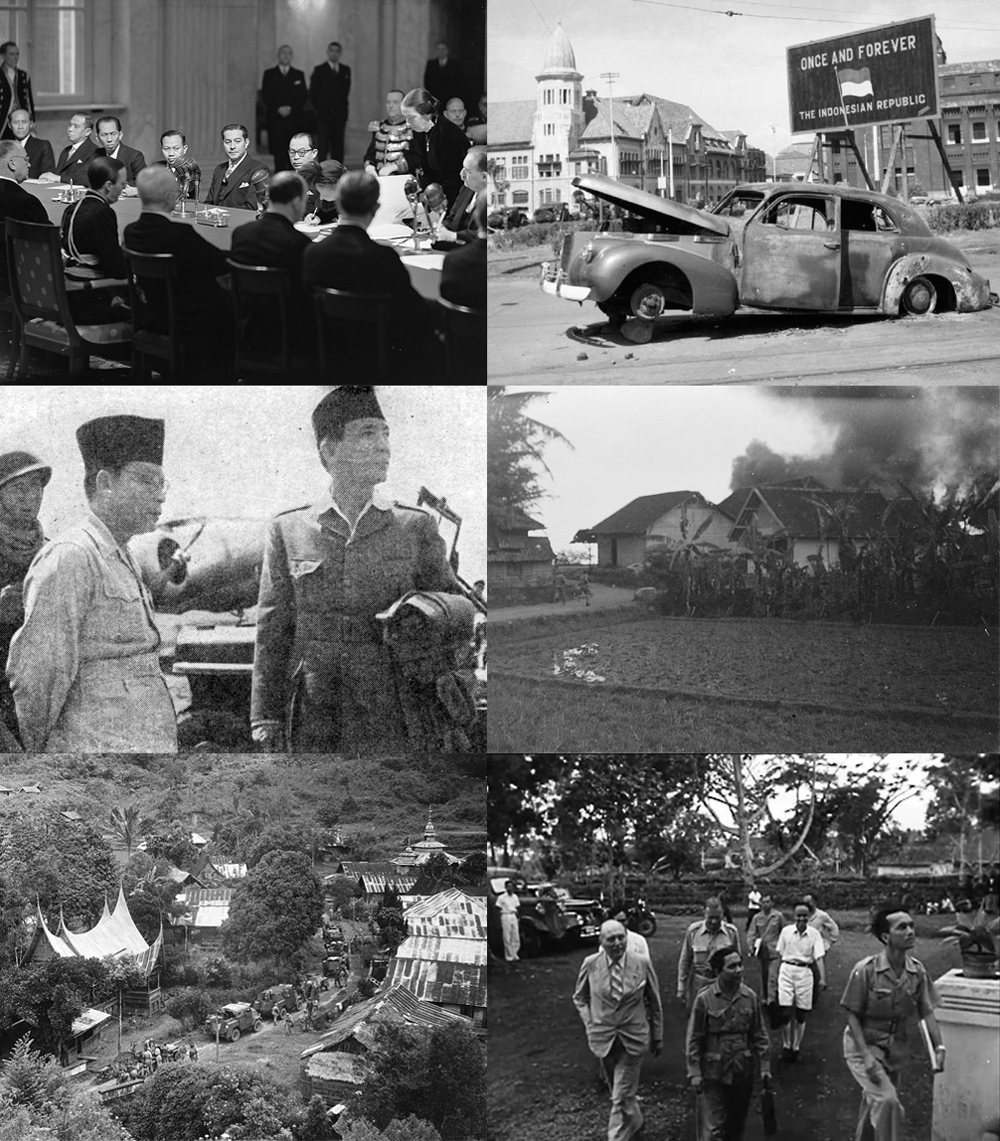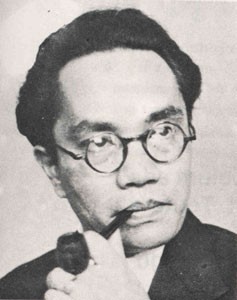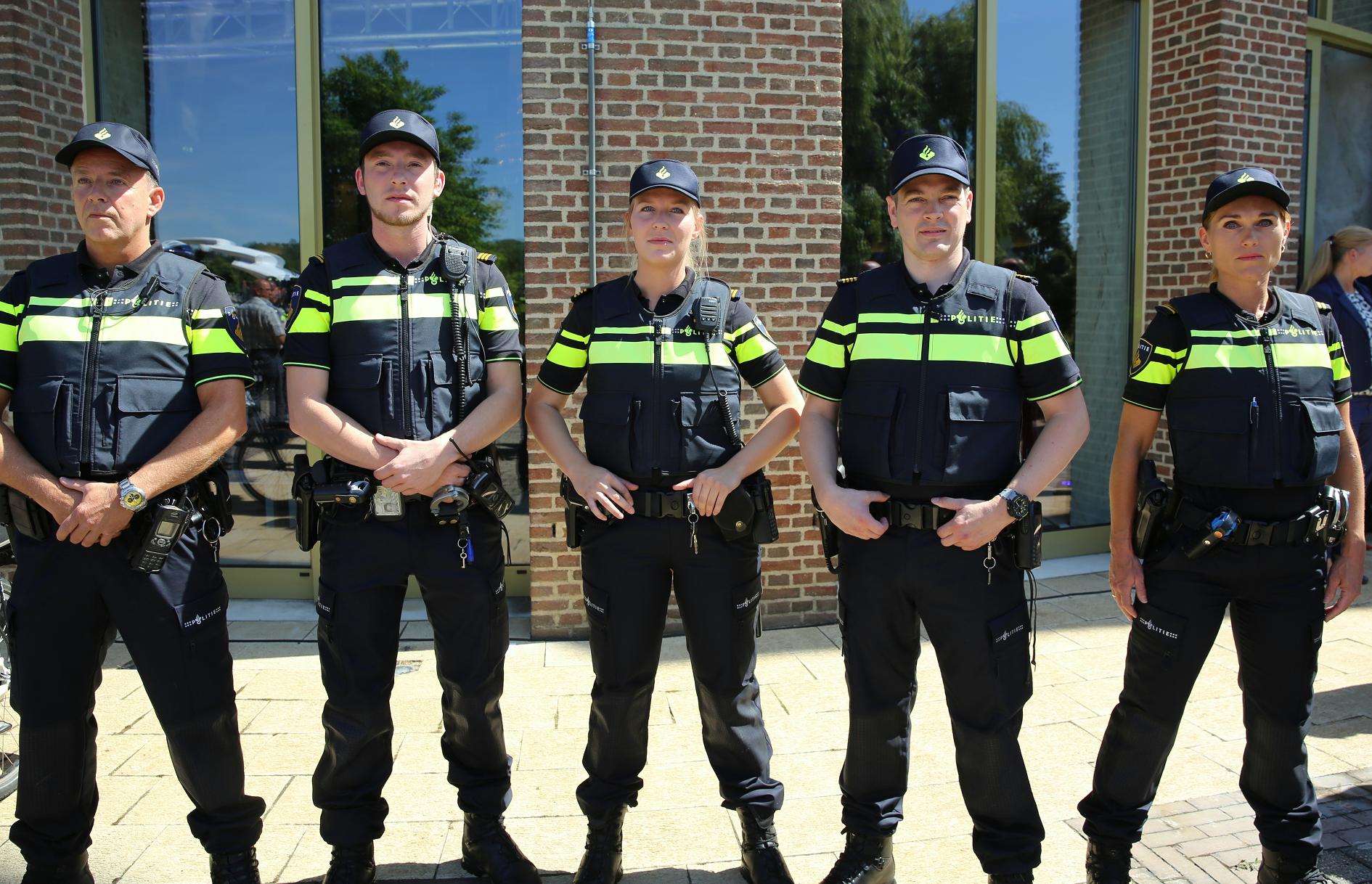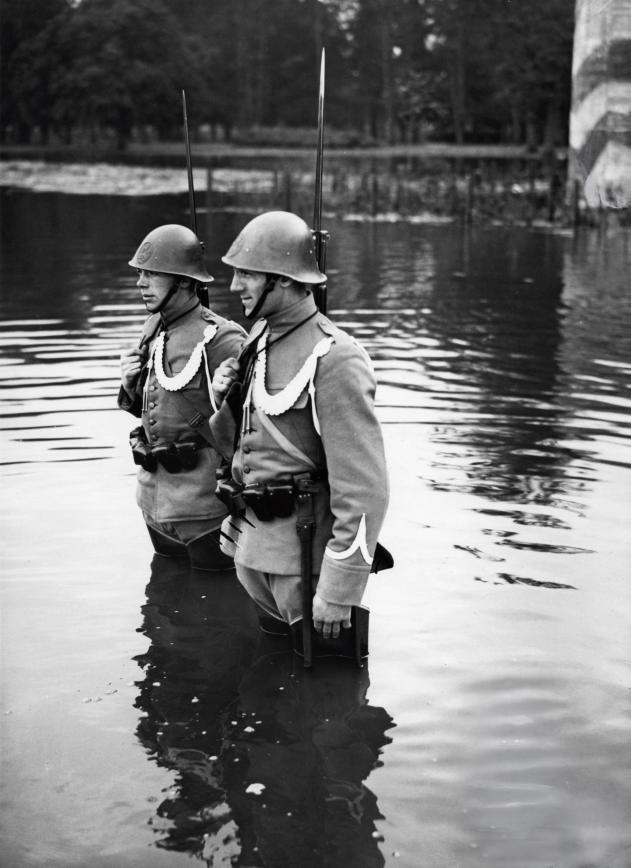|
Mohammad Tabrani
Mohammad Tabrani Soerjowitjitro (10 October 1904 – 12 January 1984) was an Indonesian journalist and politician. He originated from the island of Madura and received journalistic education in Europe. In his early journalistic career, Tabrani was a major proponent of the Indonesian language as a national language. Later on, he became the editor of the '' Pemandangan'' newspaper and promoted the independence of Indonesia through parliamentary means. Early life and education Tabrani was born in Pamekasan, Madura, on 10 October 1904 and he began his education at a MULO in Surabaya, before continuing to an AMS in Bandung. He then enrolled at the civil servant school for native Indonesians (''Opleiding School Voor Inlandsche Ambtenaren''), still in Bandung. During this period, he was active in youth nationalist organizations such as the Jong Java. Career Tabrani had begun to work as a journalist in Agus Salim's newspaper '' Hindia Baroe'', where he was a senior journalist by 1926 ... [...More Info...] [...Related Items...] OR: [Wikipedia] [Google] [Baidu] |
Pamekasan
Pamekasan is a town and administrative center of Pamekasan Regency, East Java, Indonesia. The town is located on the island of Madura. Administrative villages Pamekasan consists of 18 villages (''Kelurahan'' or ''Desa'') namely: * Barurambat Kota * Bettet * Bugih * East Teja * Gladak Anyar * Jalmak * Jungcangcang * Kangenan * Kolpajung * Kowel * Laden * Nylabu Daya * Nylabu Laok * Panempan * Parteker * Patemon * Toronan * West Teja Climate Pamekasan has a tropical savanna climate Tropical savanna climate or tropical wet and dry climate is a tropical climate sub-type that corresponds to the Köppen climate classification categories ''Aw'' (for a dry winter) and ''As'' (for a dry summer). The driest month has less than of p ... (Aw) with moderate to little rainfall from May to November and heavy rainfall from December to April. References Madura Island Districts of East Java Populated places in East Java Regency seats of East Java {{EJava-geo-stub ... [...More Info...] [...Related Items...] OR: [Wikipedia] [Google] [Baidu] |
Deutsche Einheitskurzschrift
(, German Unified Shorthand) is a German stenography system. DEK is the official shorthand system in Germany and Austria today. It is used for word-for-word recordings of debates in the Federal Parliament of Germany. Development The original version of DEK was created by an expert committee in 1924, based on the ideas of earlier systems like those of Gabelsberger, Faulmann and Stolze-Schrey. Revised versions were introduced in 1936 and 1968. The latest reform of the ''Einheitskurzschrift'' was concluded in Vienna in 1962 after many years of work and officially introduced into the German educational system in Mainz in 1968 by the German Kultusministerkonferenz (State Conference on Education) as the (“Vienna Document”) titled . This may be considered largely the brainchild of Georg Paucker, who (as representative of the German Confederation of Trade Unions) applied himself particularly to the reform negotiations regarding the . Principles Writing system DEK is based o ... [...More Info...] [...Related Items...] OR: [Wikipedia] [Google] [Baidu] |
Indonesian National Revolution
The Indonesian National Revolution, or the Indonesian War of Independence, was an armed conflict and diplomatic struggle between the Republic of Indonesia and the Dutch Empire and an internal social revolution during Aftermath of WWII, postwar and Dutch East Indies#World War II and independence, postcolonial Indonesia. It took place between Indonesian Declaration of Independence, Indonesia's declaration of independence in 1945 and the Netherlands' Dutch–Indonesian Round Table Conference, transfer of sovereignty over the Dutch East Indies to the Republic of the United States of Indonesia at the end of 1949. The four-year struggle involved sporadic but bloody armed conflict, internal Indonesian political and communal upheavals, and two major international diplomatic interventions. Dutch military forces (and, for a while, the forces of the World War II Allies, World War II allies) were able to control the major towns, cities and industrial assets in Republican heartlands on Ja ... [...More Info...] [...Related Items...] OR: [Wikipedia] [Google] [Baidu] |
Japanese Occupation Of The Dutch East Indies
The Empire of Japan occupied the Dutch East Indies (now Indonesia) during World War II from March 1942 until after the end of the war in September 1945. It was one of the most crucial and important periods in modern Indonesian history. In May 1940, Germany occupied the Netherlands, and martial law was declared in the Dutch East Indies. Following the failure of negotiations between the Dutch authorities and the Japanese, Japanese assets in the archipelago were frozen. The Dutch declared war on Japan following the 7 December 1941 Attack on Pearl Harbor. The Japanese invasion of the Dutch East Indies began on 10 January 1942, and the Imperial Japanese Army overran the entire colony in less than three months. The Dutch surrendered on 8 March. Initially, most Indonesians welcomed the Japanese as liberators from their Dutch colonial masters. The sentiment changed, however, as between 4 and 10 million Indonesians were recruited as forced labourers ('' romusha'') on economic deve ... [...More Info...] [...Related Items...] OR: [Wikipedia] [Google] [Baidu] |
Dutch East Indies Campaign
The Dutch East Indies campaign of 1941–1942 was the conquest of the Dutch East Indies (present-day Indonesia) by forces from the Empire of Japan in the early days of the Pacific campaign of World War II. Forces from the Allies attempted unsuccessfully to defend the islands. The East Indies were targeted by the Japanese for their rich oil resources which would become a vital asset during the war. The campaign and subsequent three and a half year Japanese occupation was also a major factor in the end of Dutch colonial rule in the region. Background The East Indies was one of Japan's primary targets if and when it went to war because the colony possessed abundant valuable resources, the most important of which were its rubber plantations and oil fields; the colony was the fourth-largest exporter of oil in the world, behind the U.S., Iran, and Romania. The oil made the islands enormously important to the Japanese, so they sought to secure the supply for themselves. They sent ... [...More Info...] [...Related Items...] OR: [Wikipedia] [Google] [Baidu] |
Amir Sjarifuddin
Amir Sjarifuddin Harahap ( EVO: Amir Sjarifoeddin Harahap; 27 April 1907 – 19 December 1948) was an Indonesian politician and journalist who served as the second prime minister of Indonesia from 1947 until 1948. A major leader of the left-wing during the Indonesian National Revolution, he previously served as Minister of Information from 1945 until 1946 and Minister of Defense from 1945 until 1948. Amir was born into the Sumatran aristocracy, and was educated at Leiden University. At Leiden, he became a member of the board of the Gymnasium student association in Haarlem, and was involved in the Batak student organization '' Jong Batak''. He returned to Indonesia due to family troubles, but continued his education at the '' Rechts Hogeschool'' in Batavia. After graduating, he became active in literary and journalist circles, joining the editorial board of the newspaper ''Panorama''. He also became involved with left-wing politics, and led a group of younger Marxist ... [...More Info...] [...Related Items...] OR: [Wikipedia] [Google] [Baidu] |
Mohammad Husni Thamrin
Mohammad Husni Thamrin (16 February 1894 – 11 January 1941) was a pre-independence Indonesian political thinker and nationalist who after his death was named a National Hero. Early life and beginning of political career Thamrin was born in Weltevreden, Batavia (modern day Jakarta), Dutch East Indies, on 16 February 1894. His father, Thamrin Mohd. Tabri, was the son by his Indonesian mistress of an English businessman who owned the Hotel Ort in Batavia. Tabri was subsequently adopted and raised by his Javanese uncle. Thamrin was therefore born into a neo-priyayi class and in 1906, his father became district head () under Governor General Johan Cornelis van der Wijck. After graduating from Koning Willem III Gymnasium, Thamrin took several government jobs before working for ten years for the shipping company Koninklijke Paketvaart-Maatschappij. In 1919, Thamrin was elected a member of the Jakarta City Council, and in 1929, became second deputy mayor. In 1927 he was appoin ... [...More Info...] [...Related Items...] OR: [Wikipedia] [Google] [Baidu] |
National Police Corps (Netherlands)
National Police Corps ( nl, Korps Nationale Politie), colloquially in English as Dutch National Police or National Police Force, is divided in ten regional units, a central unit, the police academy, police services center, and national control room cooperation. The law-enforcement purposes of these agencies are the investigation of suspected criminal activity, referral of the results of investigations to the courts, and the temporary detention of suspected criminals pending judicial action. Law enforcement agencies, to varying degrees at different levels of government and in different agencies, are also commonly charged with the responsibilities of deterring criminal activity and preventing the successful commission of crimes in progress. The police commissioner (eerste hoofdcommissaris) in the Netherlands is Henk van Essen since May 1, 2020. Besides police officers, the Netherlands has about 23,500 peace officers. These officers have a Special Enforcement Officer (SEO) status ... [...More Info...] [...Related Items...] OR: [Wikipedia] [Google] [Baidu] |
Battle Of The Netherlands
The German invasion of the Netherlands ( nl, Duitse aanval op Nederland), otherwise known as the Battle of the Netherlands ( nl, Slag om Nederland), was a military campaign part of Battle of France, Case Yellow (german: Fall Gelb), the Nazi Germany, Nazi German invasion of the Low Countries (Belgium, Luxembourg, and the Netherlands) and French Third Republic, France during World War II. The battle lasted from 10 May 1940 until the surrender of the main Dutch forces on 14 May. Dutch troops in the province of Zeeland continued to resist the ''Wehrmacht'' until 17 May when Germany completed its occupation of the whole country. The invasion of the Netherlands saw some of the earliest mass paratroop drops, to occupy tactical points and assist the advance of ground troops. The German ''Luftwaffe'' used paratroopers in the capture of several airfields in the vicinity of Rotterdam and The Hague, helping to quickly overrun the country and immobilise Dutch forces. After the devastating ... [...More Info...] [...Related Items...] OR: [Wikipedia] [Google] [Baidu] |
Second World War
World War II or the Second World War, often abbreviated as WWII or WW2, was a world war that lasted from 1939 to 1945. It involved the vast majority of the world's countries—including all of the great powers—forming two opposing military alliances: the Allies and the Axis powers. World War II was a total war that directly involved more than 100 million personnel from more than 30 countries. The major participants in the war threw their entire economic, industrial, and scientific capabilities behind the war effort, blurring the distinction between civilian and military resources. Aircraft played a major role in the conflict, enabling the strategic bombing of population centres and deploying the only two nuclear weapons ever used in war. World War II was by far the deadliest conflict in human history; it resulted in 70 to 85 million fatalities, mostly among civilians. Tens of millions died due to genocides (including the Holocaust), starvation, ma ... [...More Info...] [...Related Items...] OR: [Wikipedia] [Google] [Baidu] |
Volksraad (Dutch East Indies)
The ''Volksraad'' (People's Council) an advisory, and later semi-legislative institution for the Dutch East Indies, was provided for by law in 1916 but was only established with the actual installation of the Council in 1918. It was a hesitant and slow attempt at democratisation of the Dutch East Indies as part of the "ethical policy" adopted by the Dutch government. The power of the ''Volksraad'' was limited as it only had advisory powers. Although part of the council was elected only a small proportion of the population had voting rights. Initially the ''Volksraad'' had 39 members, eventually rising to 60. It was reconstituted every four years. The members were partly elected, partly appointed by the colonial administration. Background The idea of a representative body in the Dutch East Indies arose partly became of the Ethical Policy implemented by the Dutch government as part of a move away from simple exploration of the colony towards expressing concern for the Indonesian p ... [...More Info...] [...Related Items...] OR: [Wikipedia] [Google] [Baidu] |
Soetardjo Petition
The Soetardjo Petition of 1936 was a motion of the Volksraad (a nascent legislative body) of the Dutch East Indies, instigated by the legislator Soetardjo Kartohadikusumo, which was submitted as a petition to Queen Wilhelmina and the Estates General of the Netherlands. The document asked for a conference to be organized with representatives from the Indies and the Netherlands to discuss the desire of Indonesians, within a period of ten years, to be autonomous under Article 1 of the Dutch Constitution as part of a Dutch commonwealth under the Dutch Crown. The petition had six signatories: * Soetardjo ( Javanese, president of Native Civil Servants Association (PPBB)) * Sam Ratulangi (Minahasan) * Sayyid Ismail Alatas (representative of the ethnic Arab community) * I. J. Kasimo (Javanese, president of a Catholic association) * Ko Kwat Tiong Sia (representative of the ethnic Chinese community) * Datoek Toemoenggoeng (Minangkabau Minangkabau may refer to: * Minangkabau culture, culture ... [...More Info...] [...Related Items...] OR: [Wikipedia] [Google] [Baidu] |






